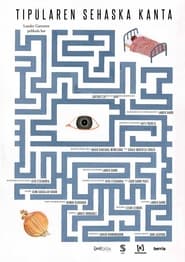Lullaby of the onion
• • Documentary
Going to the doctor to make a diagnosis or to have a treatment is a common thing in the outside world. But for every prisoner it is a very difficult or impossible path. Lander Garro, the director, turns to those who have lived the experience of being ill in prison to better understand its consequences. It uses a language that goes beyond political discourse, exploring the helplessness of prisoners whose right to health is limited from an emotional point of view, through cinematographic tools. 'Tipularen sehaska kanta' ('Nana de la cebolla' - 'Lullaby of the onion') more than a political film is an artistic film, narrated in the first person and from the entrails. Based on the poem 'Nana de la cebolla' by the Spanish poet Miguel Hernández, who died in prison in 1942, the film makes a historical analogy: if it didn't make sense to die in prison in 1936, does it make sense today?
Documentary
Going to the doctor to make a diagnosis or to have a treatment is a common thing in the outside world. But for every prisoner it is a very difficult or impossible path. Lander Garro, the director, turns to those who have lived the experience of being ill in prison to better understand its consequences. It uses a language that goes beyond political discourse, exploring the helplessness of prisoners whose right to health is limited from an emotional point of view, through cinematographic tools. 'Tipularen sehaska kanta' ('Nana de la cebolla' - 'Lullaby of the onion') more than a political film is an artistic film, narrated in the first person and from the entrails. Based on the poem 'Nana de la cebolla' by the Spanish poet Miguel Hernández, who died in prison in 1942, the film makes a historical analogy: if it didn't make sense to die in prison in 1936, does it make sense today?
Vapauta: Feb 02, 2022
Ajonaika: 83 pöytäkirja
Kieli: euskera
Maa:
Heittää:






